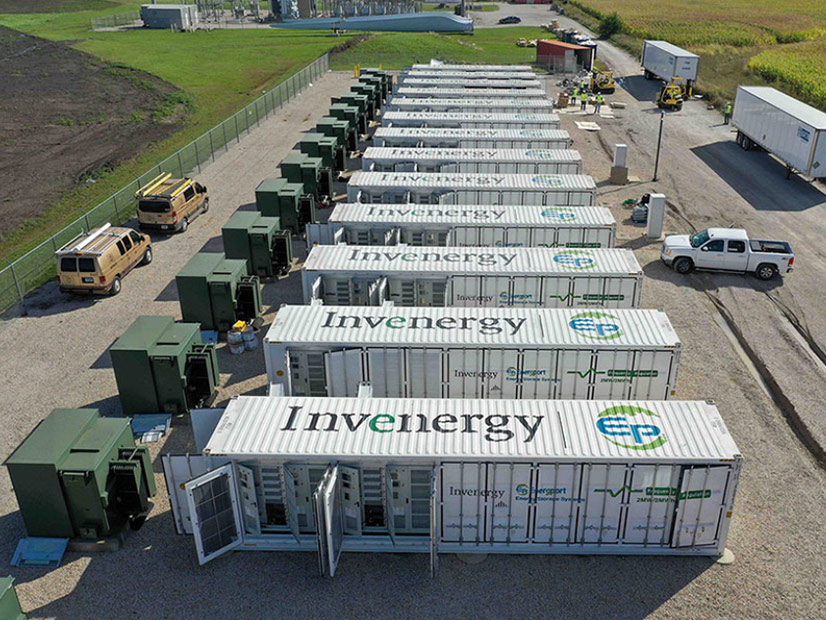In the U.S. Midwest, states do not have targets or mandates for energy storage. They also have complex regulations and varying market models. But Brad Klein, a senior attorney with the Environmental Law & Policy Center, said he expects to see “a lot of grid-scale storage being deployed through state Integrated Resource Plans or other utility proposals to replace retiring coal assets.”
“Expect a lot more of that in the future in some states that haven’t risen to the top of the radar [for energy storage deployment], like Wisconsin, Iowa and Indiana,” he said during the virtual segment of the Energy Storage Association’s annual conference on Thursday.
Klein expects storage will be a part of a long-term industry strategy to unclog PJM’s interconnection queue. Wind projects in the Midwest are facing high interconnection costs and delays as more renewables join the grid. New tax incentives put even more pressure on RTO interconnection queues, and storage is a “very big part of the way to solve that,” Klein said.
“We can hopefully deploy storage to get more of these renewable energy projects online while we are continuing to invest in the larger transmission system, which will take some time,” he said.
But deploying storage on that scale will require more policy effort from FERC and the RTOs, along with federal investment. The U.S. cannot wait to build out a transmission grid over decades to support the renewable energy that will help the country cut emissions by 50% below 2005 levels by 2030, Klein said.
Texas and the Northeast also offer strong growth opportunities for storage in the U.S.
As a deregulated market, Texas is growing renewables quickly to meet its ever-increasing load growth, said Doug Moorehead, managing partner and chief technology officer of Broad Reach Power.
The rapid growth has created volatility and transmission congestion, but storage “fixes that problem,” he said.
However, storage interconnection and infrastructure policy will be particularly important in the Northeast’s densely populated markets.
“I don’t want to imply that … the Northeast has no path forward for large-scale,” Jeremy McDiarmid, vice president of policy and government affairs at the Northeast Clean Energy Council, said.
There is potential for pairing offshore wind installations with large-scale energy storage, whether it is pumped hydro or battery installations that are larger than those in retail programs, McDiarmid said.
Early outlines from President Biden’s American Jobs Plan indicate that the preference at the federal level is for large-scale storage projects that are “semi-shovel ready and can yield big jobs, particularly among building trades,” Harry Godfrey, the director of Virginia Advanced Energy Economy, said.
“The plan would provide a clear pathway to utility-scale storage developments for utilities,” he said.




